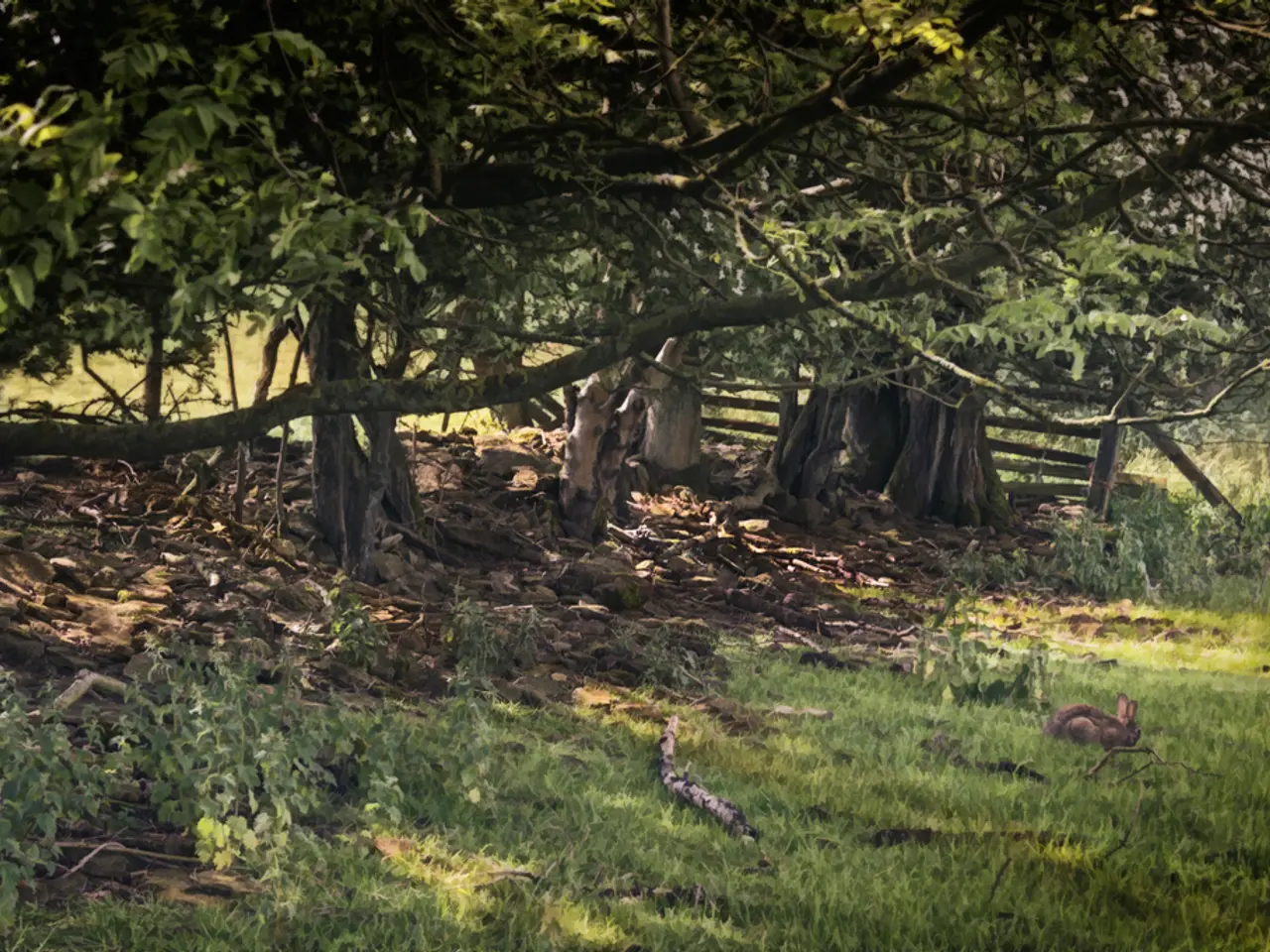Contamination issues plague the water supply.
In the heart of Wolfsburg, the popular recreational area known as the Allersee is currently facing an unexpected challenge. The rapid growth of invasive aquatic plants, namely hornwort and Canadian waterweed, has taken the city by surprise.
These atypical plant species, which have immigrated in the last few decades, are not common in the Allersee. Their sudden proliferation, growing up to 30 centimeters per week, has become a hot topic of conversation in the city.
The warm and sunny days in June, coupled with mild temperatures despite the storm, have facilitated the plants' rapid growth. This excessive vegetation can clog the water body, reduce oxygen levels, and disrupt the aquatic ecosystem balance, which deteriorates water quality and usability.
The Aller-Ohre-Ise-Association, responsible for managing the Allersee, is actively battling this water issue between the beach and the regatta course. Their aim is to make the beach area more attractive again, but they are careful not to remove all water swimming plants as they enrich the lake with oxygen and provide habitat for small creatures and fish.
The mowing work is scheduled to continue until the end of August. However, bathers should expect significant restrictions during this time. Swimmers and water sports enthusiasts are asked to keep a safe distance from the mowing boat, a work machine with a weight of about seven tons, propeller screws, and cutting blades that can be submerged up to 1.50 meters.
Bathers are also asked for understanding as excavators and tractors will be driving along the lake shore. Bathing restrictions are now in effect due to the mowing work along the shore of the lake.
The spread of these dense plant carpets has suppressed other plant distributions due to their strong growth. If the waterweed is not pruned immediately, the regatta course could disappear entirely.
Silke Westphalen, managing director of the Aller-Ohre-Ise-Association, expressed shock upon discovering the spread of these plants in the Wolfsburg Allersee. Efforts are being made to control the spread of these invasive species, but it is a complex challenge that requires ongoing management and monitoring.
[1] "Hornwort (Ceratophyllum demersum) - Aquatic Plants of North America." Aquatic Plants of North America. https://www.invasive.org/browse/detail/entity/AquaticPlants/Hornwort_Ceratophyllum_demersum/ [3] "Canadian Waterweed (Elodea canadensis) - Aquatic Plants of North America." Aquatic Plants of North America. https://www.invasive.org/browse/detail/entity/AquaticPlants/Canadian_Waterweed_Elodea_canadensis/
Read also:
- Germany's three-month tenure under Merz's administration feels significantly extended
- United Nations Human Rights Evaluation, Session 45: United Kingdom's Statement Regarding Mauritius' Human Rights Record
- Hurricane-potential storm Erin forms, poised to become the first hurricane in the Atlantic Ocean this year.
- Amidst India's escalating climate crisis, transgender individuals continue to persevere.








